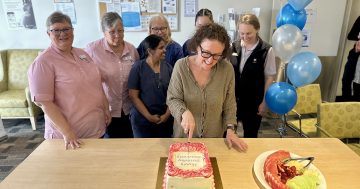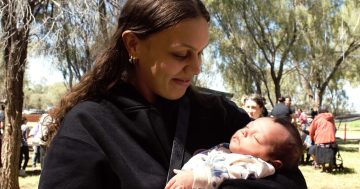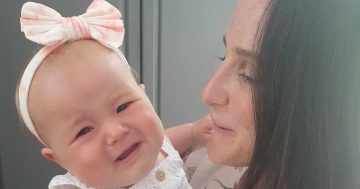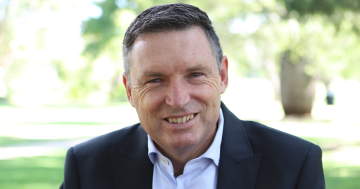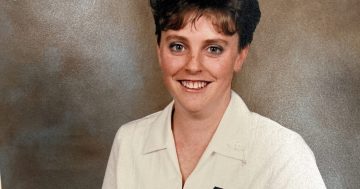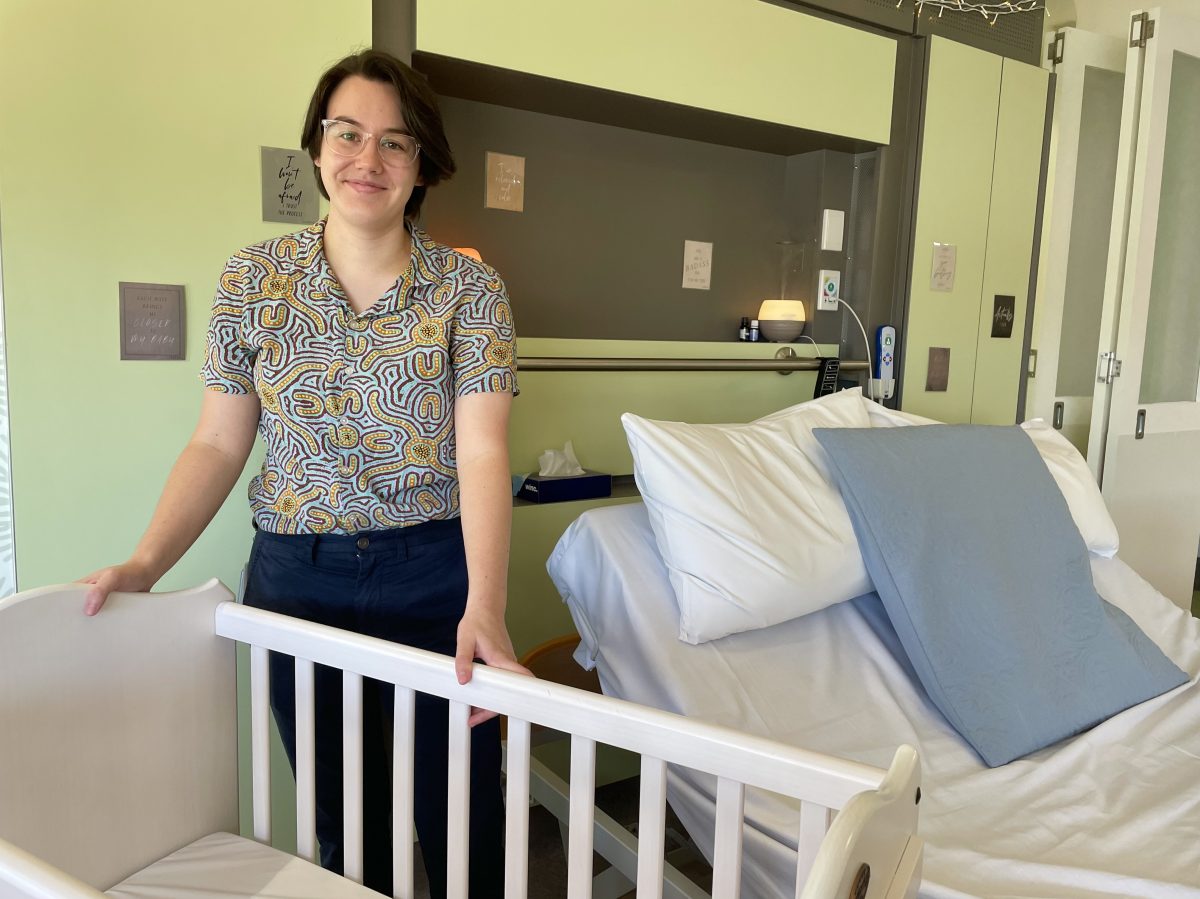
The hand that rocks the cradle: Remy Peters in a Calvary birthing suite. Photo: Genevieve Jacobs.
It’s easy to believe there’s a wild new world out there, where everything is strange and different. But when you’re delivering babies, one thing matters most: are mother and baby safe, well and cared for, no matter who they are?
Remy Peters, who works at Calvary as a midwife, brings a particular perspective to their work. As an LGBTQIA person who is non-binary and Aboriginal, there’s a close link with several groups of people who find hospitals – and maternity wards – especially challenging.
Remy turned to midwifery when their then-partner, now wife, moved to Canberra to study environmental science. While they’d barely considered it during school, a passion grew quickly.
“Feminism and midwifery go hand in hand,” Remy says.
“Here in the maternity ward, you’re at the forefront of care and you can really make a big difference in somebody’s life. You’re essentially impacting generations to come through what could be a few months of interaction.”
Remy says that for many Aboriginal people, ancestral trauma is triggered when giving birth.
“It wasn’t that long ago that our grandparents were taken away, often at hospitals as they were born. It takes a lot of active work every day to make sure that you’re creating a safe space for Aboriginal women to come and give birth.
“There is a stigma around church and faith-based health care in general because they were a big part of the removal of children for decades.
“We have a team of Indigenous liaison officers here, and specifically a member of that team who works within maternity with every single pregnant person who identifies as Torres Strait or Aboriginal. We acknowledge they are never going to feel 100 per cent at home … so I’m establishing a relationship of trust even though they might feel freaked out.
“I’m essentially going to do my best to protect them from anything that may come their way.”
While the details differ for people from the LGBTQIA community in Canberra who are creating families, Remy – who has just begun their own fertility journey with their wife – says the principles are the same.
“It’s obviously a very gendered space at a time when people can be very vulnerable and uncertain about what’s happening to them.
“It’s who your partner is, little things like how you describe your body, what your partner will be called by the child. That conversation has to happen every time you go and seek care. You just never feel 100 per cent comfortable. It’s like you have to come out over and over again.”
Remy points out that LGBTQIA couples have likely gone through extensive, often draining and very expensive fertility treatment to be pregnant in the first place.
In response, they’ve created “a kind of rainbow community service” within the Calvary Birth Centre, which aims to help same-sex or gender-diverse families with care from someone who has shared their journey, has insights into particular struggles and can provide them with comfort and safety.
“I like to think my care isn’t just about accepting people,” Remy says. “Acceptance is the bare minimum these days. I want to help them celebrate such a special journey in life.”
Acceptance has also been a major part of their career path working with a Catholic hospital. Remy admits to being nervous when, being openly gay, they approached Calvary for work. It was around the same-sex marriage vote, but Remy says, despite their fears, they’ve received nothing but warmth and welcome in the workplace.
“Calvary has always not just supported me but celebrated my unique perspective. When the news came through about the same-sex marriage vote, we were all listening on the radio and people jumped with delight. It was a big moment.”
Remy has run a number of in-service education programs for midwives educating them on how to deal sensitively with the LGBTQIA community, and during the World Pride celebrations, has drawn strength from the celebration of diverse lives.
“It’s been great to see my community come out of their shells,” Remy says.
“It reminds me that we are all out there, doing our thing, excelling in our careers and caring for our families.”












